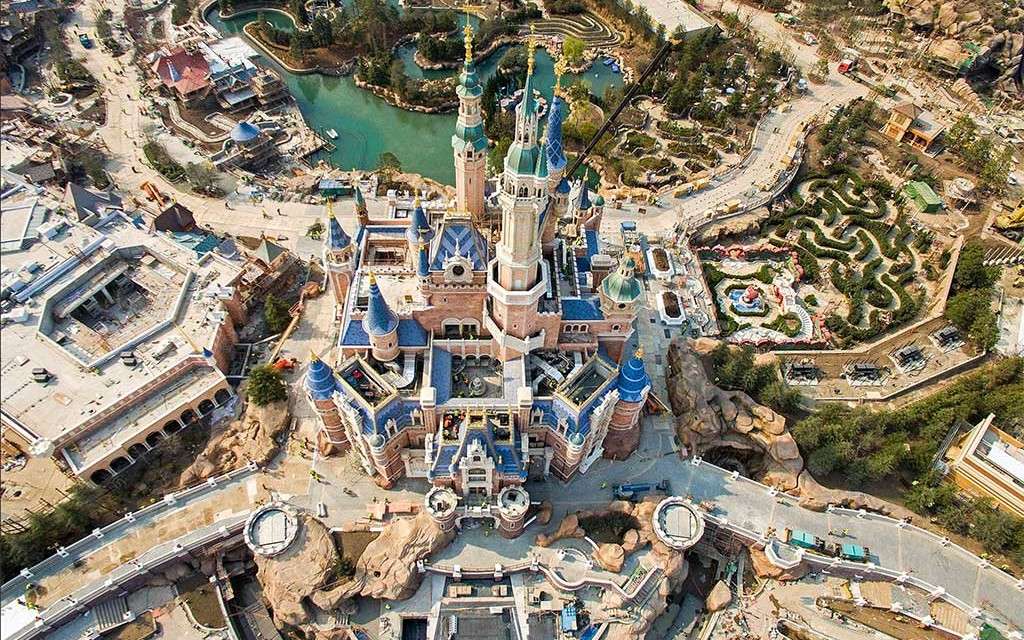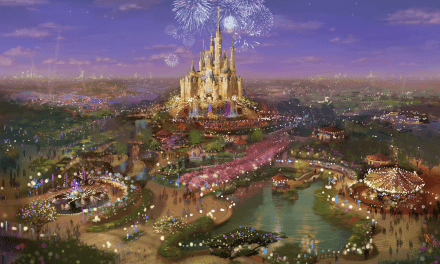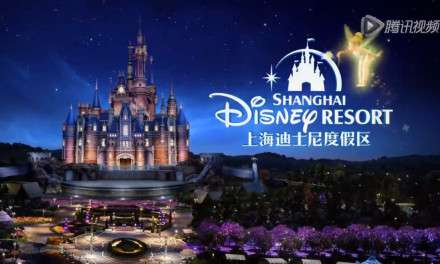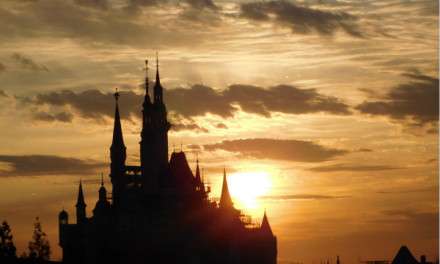Zhou Jian, a 26-year-old folk dancer, dreams of a stage career, and he believes the Magic Kingdom can help him get there.
Zhou recently made the 14-hour journey by train from Shanxi, China, to attend a jobs fair in Shanghai, where he hopes to land work at Walt Disney Co.’s 963-acre, $5.5 billion resort set to open June 16. He covets a role in the “Lion King” musical production that will be performed in Mandarin for the first time.
“I want to be famous before 30 years old,” he said. “I’ve performed on big and small stages for several years and haven’t made much progress. Disney is a world-famous brand. I thought it would be a very good stage for me.”
It’s also a massive management challenge: Iger said last year the park would employ about 10,000 workers in an economy where rapid-fire turnover and uneven customer service can be challenges for multinational corporations.
Standards ‘Gap’
“The focus on customer service is very important for Disney, but there is still a huge gap between their standard and normal Chinese standards,” said Sara Wong, Kelly Services’ Hong Kong director of recruitment process outsourcing. “They are not hiring 10 people, they are hiring 10,000.”
Disney recruited heavily from the Chinese hospitality, retail and food and beverage industries and then trained its new hires to run a park with myriad attractions, musical acts and all manner of retail outlets.
“The theme-park industry is relatively small, so there are limited resources available,” said Chris Yoshii, vice president for economics in the Asia-Pacific region for the industry consultancy Aecom. “I don’t know of any universities that offer theme-park operations programs.”
There currently are about 8,000 workers at the Shanghai park, people with direct knowledge of the matter said. Hiring for park and hotel operations, food and beverage outlets and merchandise sales started in October, the people said, asking not to be identified because the information isn’t public.
‘Busted Bulbs’
Burbank, California-based Disney said in an e-mail its pay is on par with the local market and reflects the worker’s role.
Disney will be aiming to set a new high bar for service in China, where local parks’ standards of cleanliness, maintenance and customer service are generally lower than international operators’, said Yoshii, who’s based in Hong Kong. Disney opened a Hong Kong park in 2005, yet it’s less than a third the size of the Shanghai project and in a city where the workforce is more internationalized.
“It’s common to see a lack of upkeep, like peeling, faded paint and busted light bulbs,” Yoshii said of Chinese theme parks. “There’s also a lack of engagement by staff with visitors, as opposed to the norm in Disneyland, where staff proactively greet and help people and are even expected to break into song and do impromptu performances.”
Companies typically screen seven applicants for every job, recruiting agencies said — meaning Disney sorted through about 70,000 applications for Shanghai.
Orlando Training
Back in 2012, Disney focused on filling 100 openings for highly skilled specialists in engineering, design and other fields to assist with construction. Two years later, Disney recruiters kicked off a campus roadshowto Shanghai, Zhejiang, Anhui and Henan to target talented students for management.
About 200 went on a two-month internship at the Walt Disney World Resort in Florida, training alongside Americans. They were all offered jobs with the Shanghai park after the internship.
Later that year, Disney began recruiting 1,000 performers from art schools and performing troupes as singers, dancers and musicians. During the University of Southern California’s global conference in Shanghai in October, Iger said he met with 1,000 Shanghai recruits who went to Florida.
“I detected not only a great enthusiasm and curiosity, but a real love of Disney, and that made me feel great,” he said.
Job Fairs
Disney organized job fairs to hire thousands of waiters, cooks, cleaners and costumed street performers. And the company cast a wide net, regardless of past experience, in hiring, Wong said.
“They had no limitations on experience or background, even people coming from a factory would be considered,” she said. “What they wanted was the attitude: the friendly, open quality that would fit into their culture.”
Disney also is using training, benefits and perks (including free passes) as lures rather than base compensation, which from a multinational company is likely to be lower than Chinese state-owned companies, said Kimberly Hubble, executive general manager for recruitment process outsourcing in Asia at Sydney-based Hudson.
Those who have accepted job offers cite an 8,000 yuan ($1,237) monthly salary for an entry-level job.
“Disney would give me some security in life” because it provides health and workplace injury insurance, a housing allowance and a one-month bonus, Zhou said. “And there are lots of different types of jobs at Disney. If I don’t want to dance in the future, I could change to another role.”
Competition Coming
Disney should be prepared for turnover rates of between 30 percent to 40 percent, recruitment agencies said. Neither the benefits nor the brand would retain ambitious workers seeking better pay packages, said Y.C Tong, vice-president of talent acquisition at China RPO group in Hong Kong.
“Good quality people, once they work for an organization like Disney and gain experience, have a tendency to leave,” he said. “Moving from one job to another is how they increase their compensation at a very fast pace.”
Also, Shanghai Disney will face greater competition from local rivals. Industry consultancy Aecom estimated that 59 new theme parks will open by 2020, serving an estimated 220 million park-goers. That’s roughly the size of the entire U.S. market right now.
The Shanghai region looks set to become the Orlando of China, with five mega-parks to open there, Aecom said. DreamWorks Animation SKG Inc has a $2.4 billion DreamCenter scheduled for 2017; Haichang Ocean Park Holdings will open China’s largest marine park that year; and Six Flags Entertainment Corp. will open its first park outside North America in 2019.
Zhou, meanwhile, returned home to Shandong and is waiting to find out whether his ticket into the Magic Kingdom has been punched. He got a callback after his initial interview.
With Shanghai Disney set to open in less than three months, Zhou knows his chances are slim, but he’s hopeful. His strategy now? “Keeping busy and waiting to hear from Disney.”





